SPOTLIGHT
Questions mount over functionality and value of Eastern Cape clinic committees
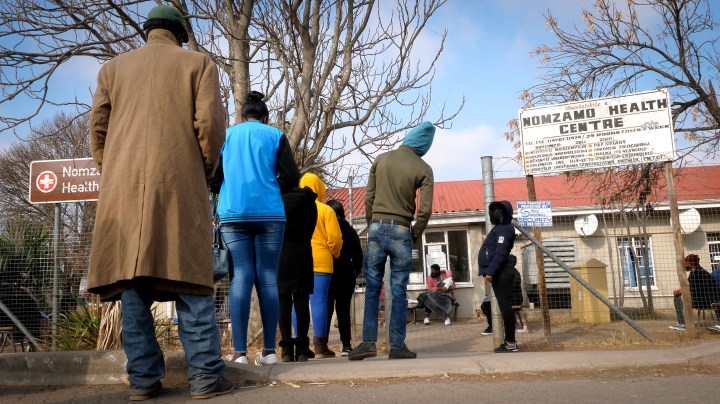
Luvuyo Mehlwana asks what value clinic committees and hospital boards can add to help improve public healthcare services in the province.
In recent years damning findings from the Public Protector, the Human Rights Commission, the Public Service Commission, and the community-led monitoring group Ritshidze have been piling up against the Eastern Cape Department of Health and the quality of healthcare services it provides in the province.
In theory, one mechanism that can make the healthcare system more responsive to the needs of communities is to have active clinic committees and hospital boards that provide a link between facilities and communities. When properly constituted and active, these bodies can increase facility-level accountability and help find constructive solutions to healthcare service delivery problems.
However, it seems that these statutory bodies are often hamstrung by political interference. In addition, policies differ between provinces and are sometimes incomplete, since provincial health MECs can determine how these structures should be constituted and how they should function. While the establishment of clinic committees is mandated in the National Health Act, the act leaves significant discretion to provinces.
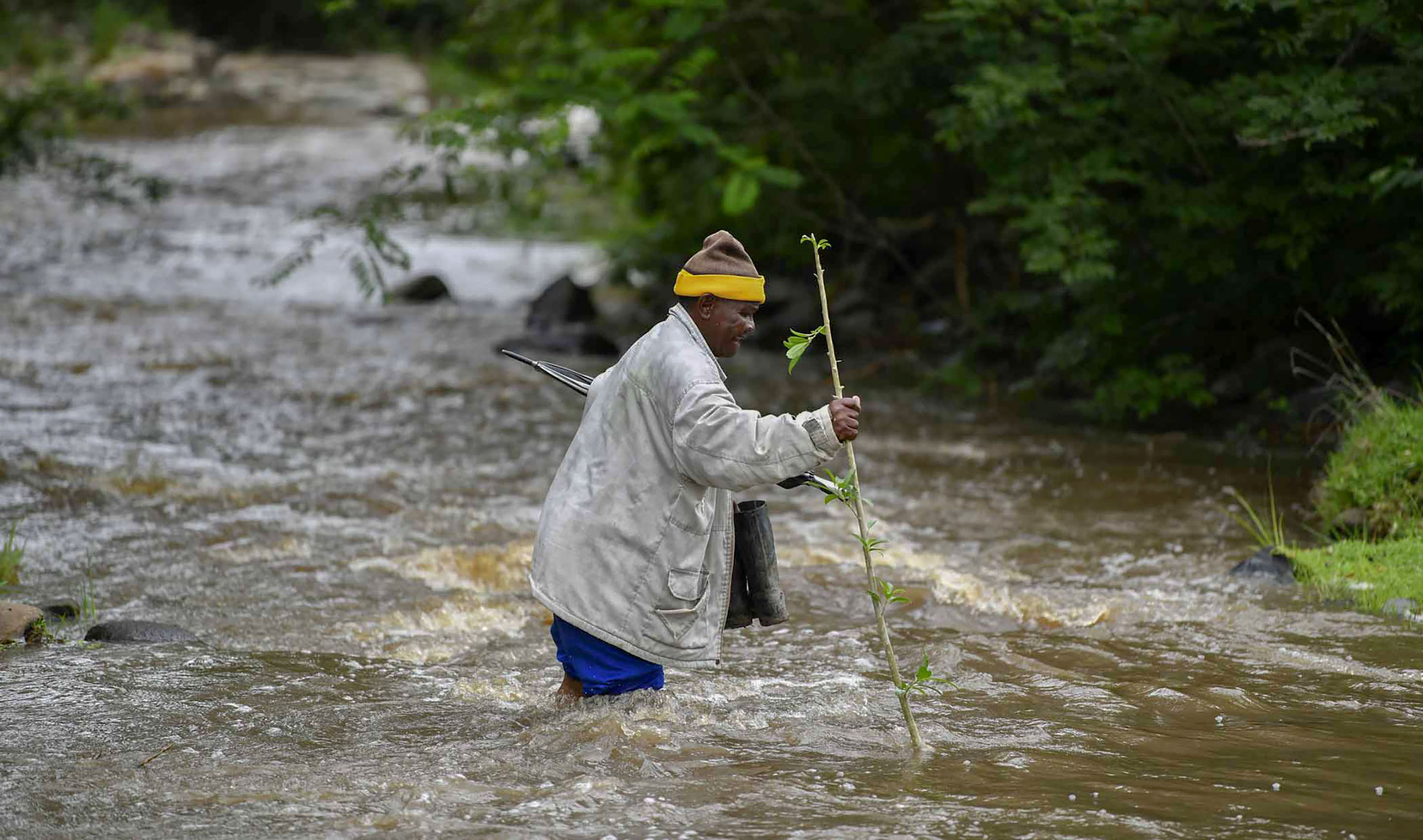
A Xhora Mouth, Eastern Cape resident, has to cross the river in flood to get to the nearest clinic. (Photo: Black Star / Spotlight)
Health services paint grim picture
In May, nurses reportedly closed half of the clinics in the Nelson Mandela Bay metro for about two weeks over what they called unreasonable workloads because the health department is not filling vacancies, especially in primary healthcare facilities.
In January, security guards at healthcare facilities in Nelson Mandela Bay went on strike when their salaries had not been paid. During the strike, healthcare workers had to close some clinics as they feared for their safety, and patients were left stranded.
Last year, Ritshidze’s clinic monitoring report found that delivery of health services in the Eastern Cape is hamstrung by staff and medicine shortages. The findings showed 133 vacancies in 28 clinics, mainly for professional nurses, enrolled nurses, cleaners, doctors, enrolled nurse assistants, and assistant pharmacists.
Spotlight recently also reported on the continued use of unsafe mud clinic structures in rural areas in parts of the Eastern Cape, which the department acknowledged was a concern.
At Livingstone Hospital, old laundry machines and staff shortages were creating backlogs in getting clean linen, towels, and hospital gowns to patients who said they were sleeping on soiled sheets. The hospital also made headlines when millions in unpaid bills to a service provider put a number of patients waiting on orthopaedic implants at risk. The provincial health department’s court bid to stop medical negligence claimants from attaching money in the department’s bank account failed last month when the high court refused to grant an interdict against the claimants. The department argued that paying claimants would lead to a “total collapse” of healthcare in the province. In refusing to grant the interdict, the court slammed the department for not budgeting for the rise in medical negligence claims.
A common thread running across this grim picture is that healthcare users suffer the consequences. To this end, the law (National Health Act) provides for community-based governance structures such as hospital boards, clinic committees, and community health centre (CHC) committees to participate in the health system. So, clinic committees and hospital boards in theory should be the bridge between the needs and concerns of healthcare users and getting the health department to address this.
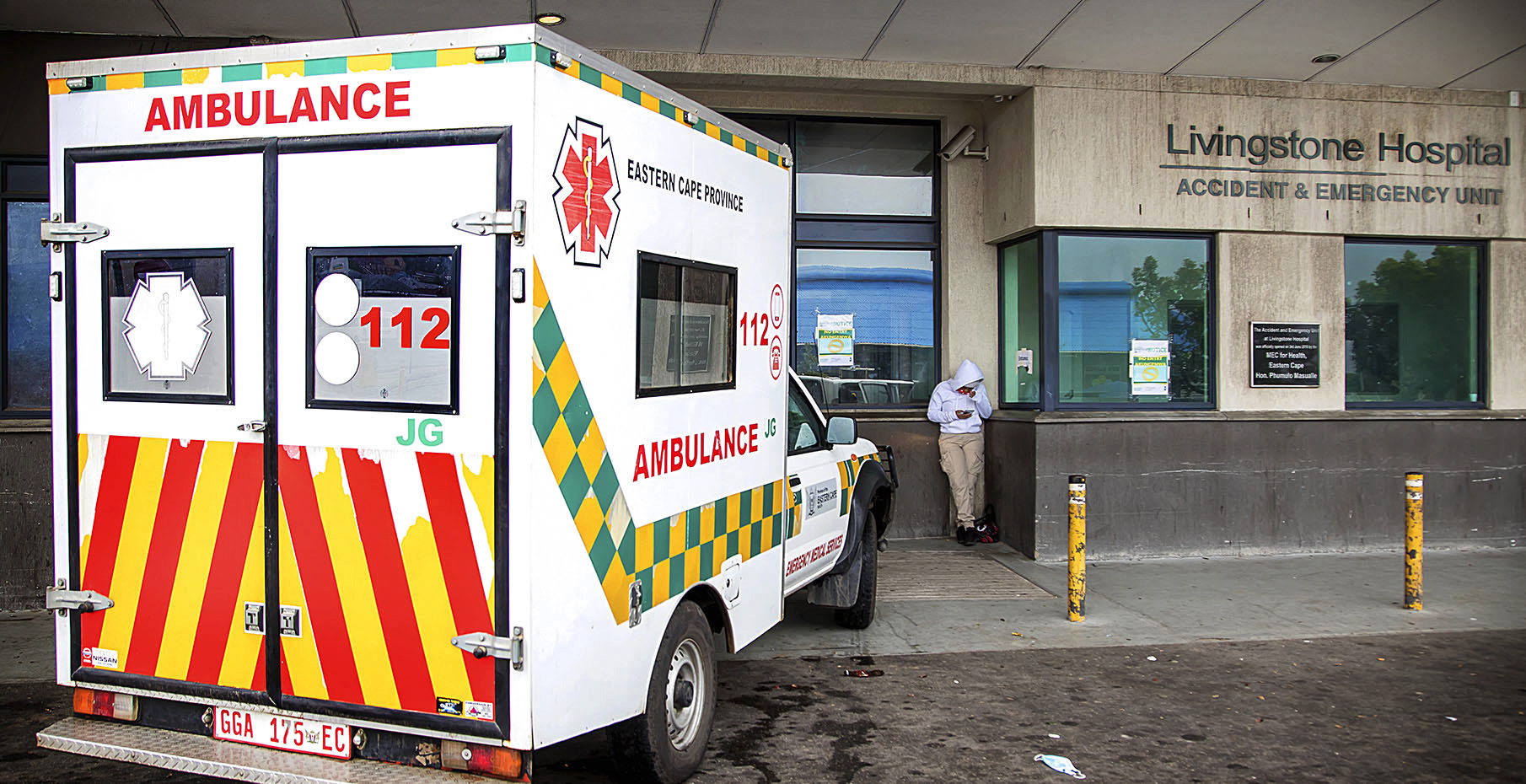
At Livingstone Hospital, old laundry machines and staff shortages were creating backlogs in getting clean linen, towels, and hospital gowns to patients.. The hospital also failed to pay millions in unpaid bills to a service provider, putting a number of patients waiting on orthopaedic implants at risk. (Photo: Donna van der Watt)
‘Don’t have a clue about their job’
Two years after Spotlight reported on the role of clinic committees in provinces like the Eastern Cape, the challenges facing committee members in that province appear to remain the same.
During a visit to Walmer Clinic in Gqeberha, Spotlight spoke to some healthcare users. One healthcare user, Brenda Yengeni, says clinic committee members “are too weak to maximise their potential contribution to community participation processes”.
“Clinic committees in our clinics (she used to go for treatment at Mandligozi Clinic before being transferred to Walmer Clinic) are dysfunctional. People are continuing to receive poor service in clinics under their watch. Those people claim to represent the residents but they do not. If they were doing their job, we would not have patients waiting in long queues from early in the morning until late afternoon without receiving assistance,” Yengeni says.
“Clinic committees need people who are strong and vigilant all the time — people who are willing to serve communities and enhance service delivery. In most cases, they [clinic committee members] don’t have a clue about their job. People are always unhappy and disgruntled about clinic services. They are not there to monitor and ensure that Batho Pele principles and the Patients Charter of Rights are being followed.
“We don’t even know where these people are reporting to,” Yengeni says. “What I understand is that ward councillors nominate community members to the clinic committee. We don’t know if they are reporting to the councillor or if they are reporting to the department. They don’t even bother to call community meetings and inform us about anything that has to do with the clinic.”
Creating ‘zombie committees’
A former clinic committee member who asked not to be named for fear of victimisation, says he is concerned about how committees are constituted.
“There is still a huge gap between committee members and the community,” he says. “Some communities don’t know anything about the public health committees. As a result, when community members face some challenges in their facilities they don’t know how and where to report their grievances.”
Another challenge, he says, is that too often people with low literacy and numeracy levels, but who are politically connected, are nominated. “This makes it difficult for the committee to function at its best. This is also because members don’t understand their roles. Instead, they are involved in menial tasks. Those who are lucky enough to receive induction will discover that they still need more to be effective. This is a deliberate action to create zombie committees which are simply there to rubber-stamp the wishes of the department and the management,” he says.
According to the provincial health department’s 2022\23 budget, it has approved the appointment of 573 clinic committees, 23 community health centre (CHC) committees, and 72 hospital boards since September last year. The health department did not respond to Spotlight’s requests for detail on how much was budgeted for stipends. The department reportedly failed to pay stipends to members of hospital boards since October last year and said this was due to outstanding documents.
But it is not clear how functional these committees and boards actually are.
“We don’t have an active hospital board. If the board exists it exists on paper only,” a nurse at Uitenhage Provincial Hospital tells Spotlight.
This, according to the nurse, means the community has no voice and the hospital management is only accountable to themselves. This was one of the issues raised “when the Office of the Public Protector was here, but it has not yet been resolved”.
Uitenhage Provincial Hospital is among the hospitals that Deputy Public Protector Advocate Kholeka Gcaleka visited in the province on 4 August 2020. In her report, she found that the department “has failed to ensure effective health care services for the community around Uitenhage”.
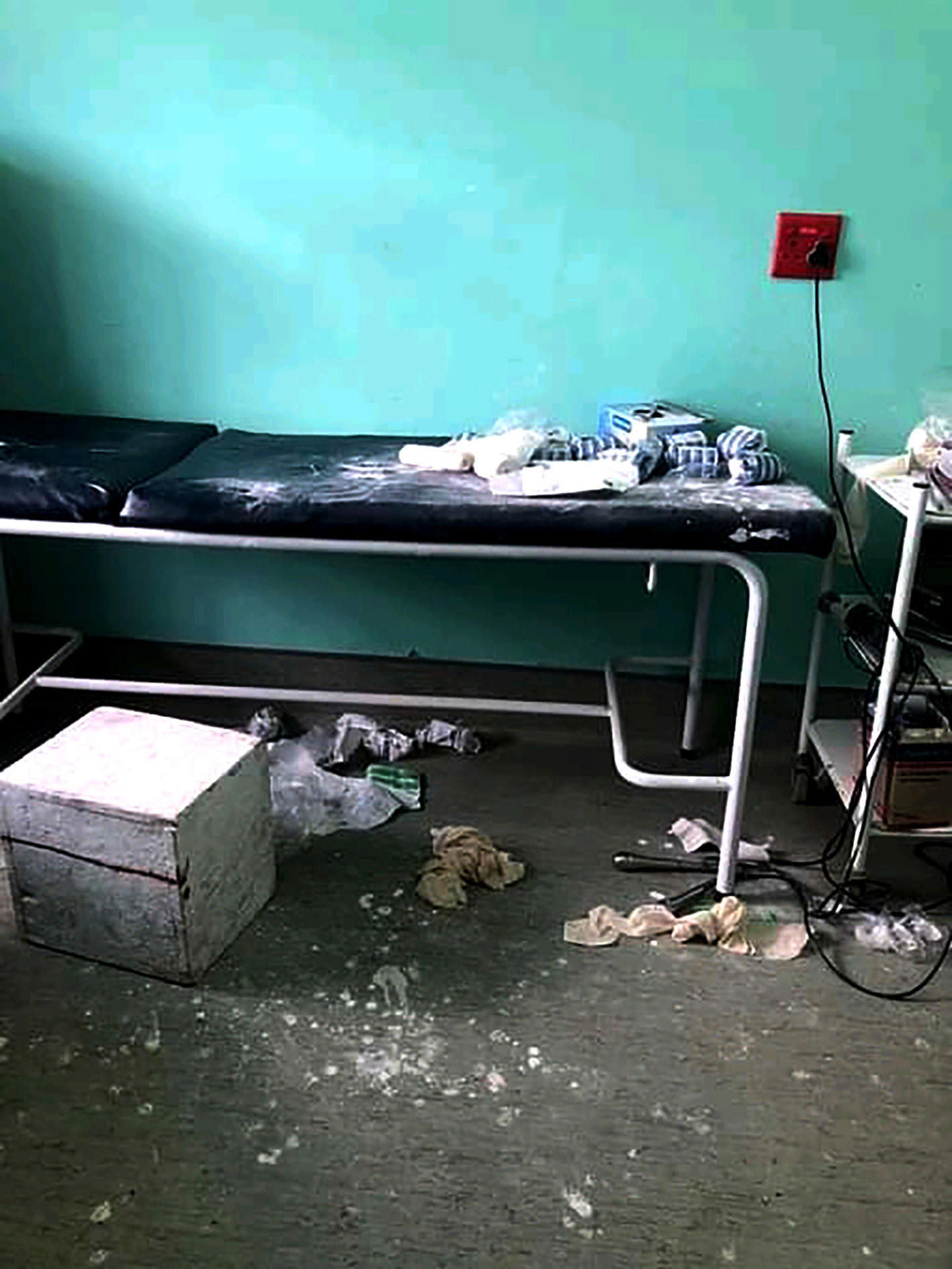
Healthcare workers and healthcare users complain about the conditions in the All Saints Hospitals in the Eastern Cape. (Photo: Siyabonga Kamnqa / Spotlight)
‘Bridge with the community’
Thamie Gabula, the chairperson of the Motherwell Community Health Centre (CHC) committee, says he leads a committee consisting of eight community members.
He says as far as he understands the clinic committee ensures there is good service delivery, has an oversight role in the development of health policies, makes proposals around safety issues, and holds office bearers accountable for better health services.
“We are the bridge between the community and the department [clinic] because we liaise with nurses and the community when there is a problem and we mediate,” Gabula says.
According to Gabula, their committee members have not yet received any training or induction regarding their job description and role from the department, despite having signed their contracts in October 2021.
“The department promised to train us but until now we haven’t heard anything from them. We only get to know and understand how clinics operate during our meetings,” he says.
“Under normal circumstances, we are supposed to hold our meetings every quarter but due to challenges faced by healthcare workers, we end up hosting our meeting any time when the need arises. What I have discovered is that there are a lot of abnormalities and the department doesn’t have an ear to listen. We raised the issue of staff and ambulance shortages, including the issue of poor infrastructure that led to poor service delivery but all our pleas, fell on deaf ears.”
Gabula says that because the department doesn’t want to listen, nurses closed half of the clinics in Nelson Mandela Bay in May for a period of two weeks saying that their workload has increased due to unfilled posts.
“Patients are waiting in long queues, sometimes in cold and wet conditions. There is no form of improvement in our clinics as this has been happening for a very long time. Every time we raised this issue to various authorities, we only received lip service,” he says.
He adds that he sometimes feels that they receive their stipends (R500 per quarter) for doing nothing as no one listens when the committee raises issues.
“The department doesn’t recognise clinic committees. I wish that the department could utilise us correctly because we are from these communities and we know what the community needs are. We want to assist in speeding up the service delivery and to uplift the people’s lives and healthcare services,” Gabula says.
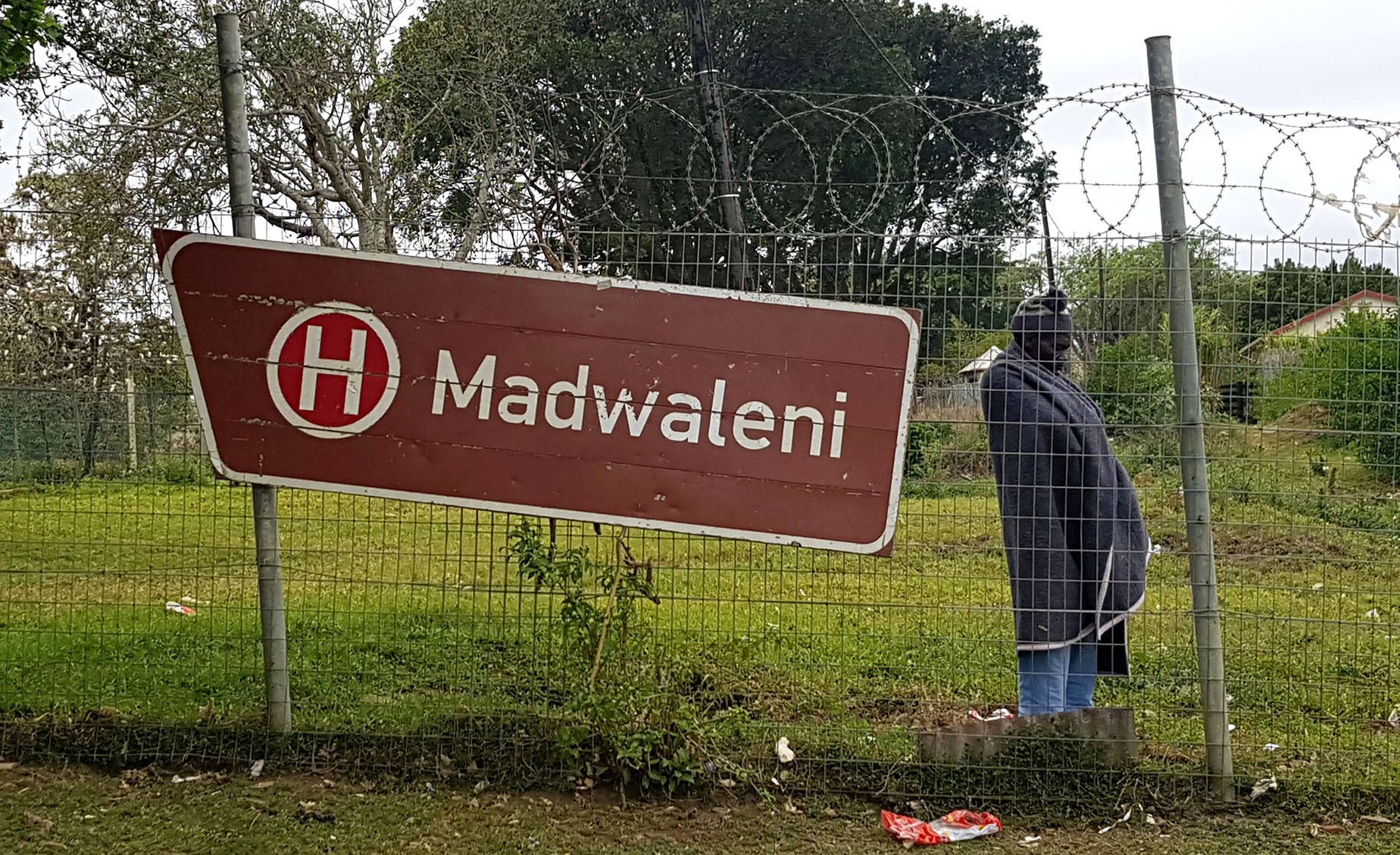
Madwaleni Hospital near Elliotdale is one of the hospitals servicing the people of the Xhora Mouth area in the Eastern Cape. (Photo: Alicestine October / Spotlight)
How to harness the potential of clinic committees and hospital boards?
Russell Rensburg, Director of the Rural Health Advocacy Project (Rhap) believes that it is time to change the provisions on these structures in the National Health Act as it is not working.
“There is a lot that needs to be fixed. First, we need to look at who is represented and whether the people who are representatives in clinic committees and hospital boards reflect the users of the facilities. We need to have people living with HIV and TB and young people in those structures in addition to ward councillors and traditional leaders,” Rensburg says.
“There is a need for a well-constructed clinic committee that will play a massive role in building trust in public health services. Civil society has a chance now to make clear demands on what are service expectations from the clinic. The government and the provinces need to engage communities and not just make policies on their own,” says Rensburg. “The community voice is important because they are the ones who are using these facilities rather than sitting with experts and writing these policies.
“Now that we are recovering from Covid-19 we have an opportunity to start asking questions such as how to improve community participation in healthcare. We should use that as an understanding of how our service can be more responsive to the community that they serve. There should be community imbizo at least twice a year to explain the process and for those structures to account to the communities,” he says.
*Attempts by Spotlight to get comment from the health MEC’s spokesperson, Mkhululi Ndamase were unsuccessful. He acknowledged receipt of Spotlight’s questions but failed to reply by the time of publication. Spotlight also tried to speak to more members of hospital boards and clinic committees but they refused to comment citing the department’s media policy. DM/MC
*This article was published by Spotlight – health journalism in the public interest.





















 Become an Insider
Become an Insider
Comments - Please login in order to comment.